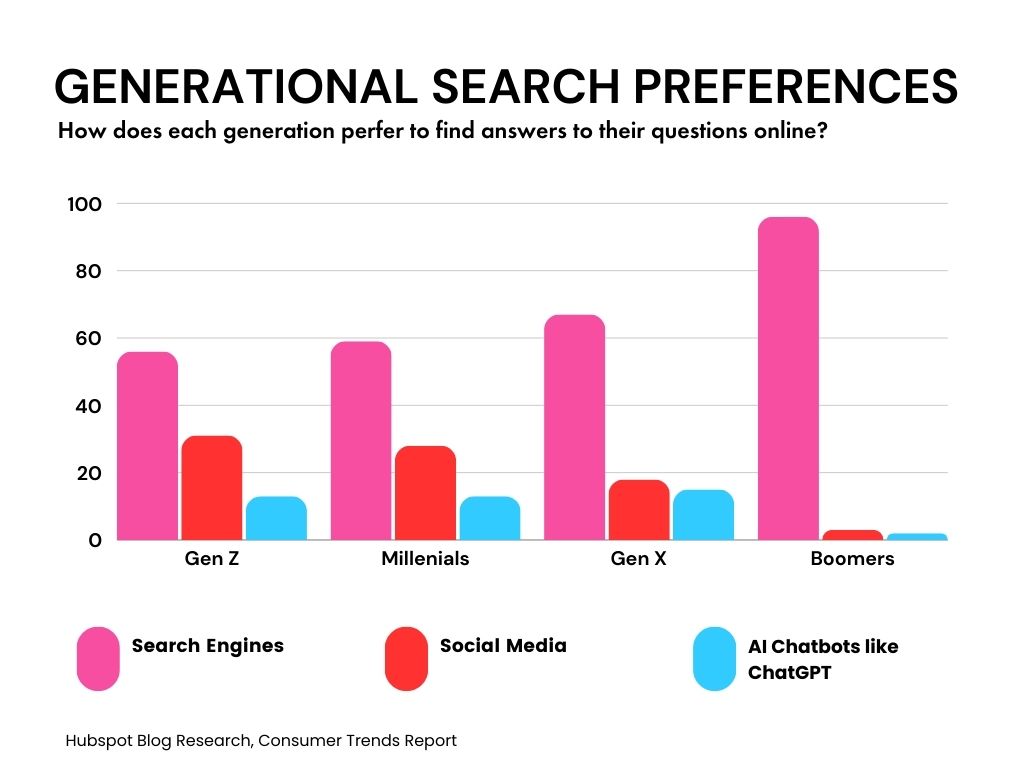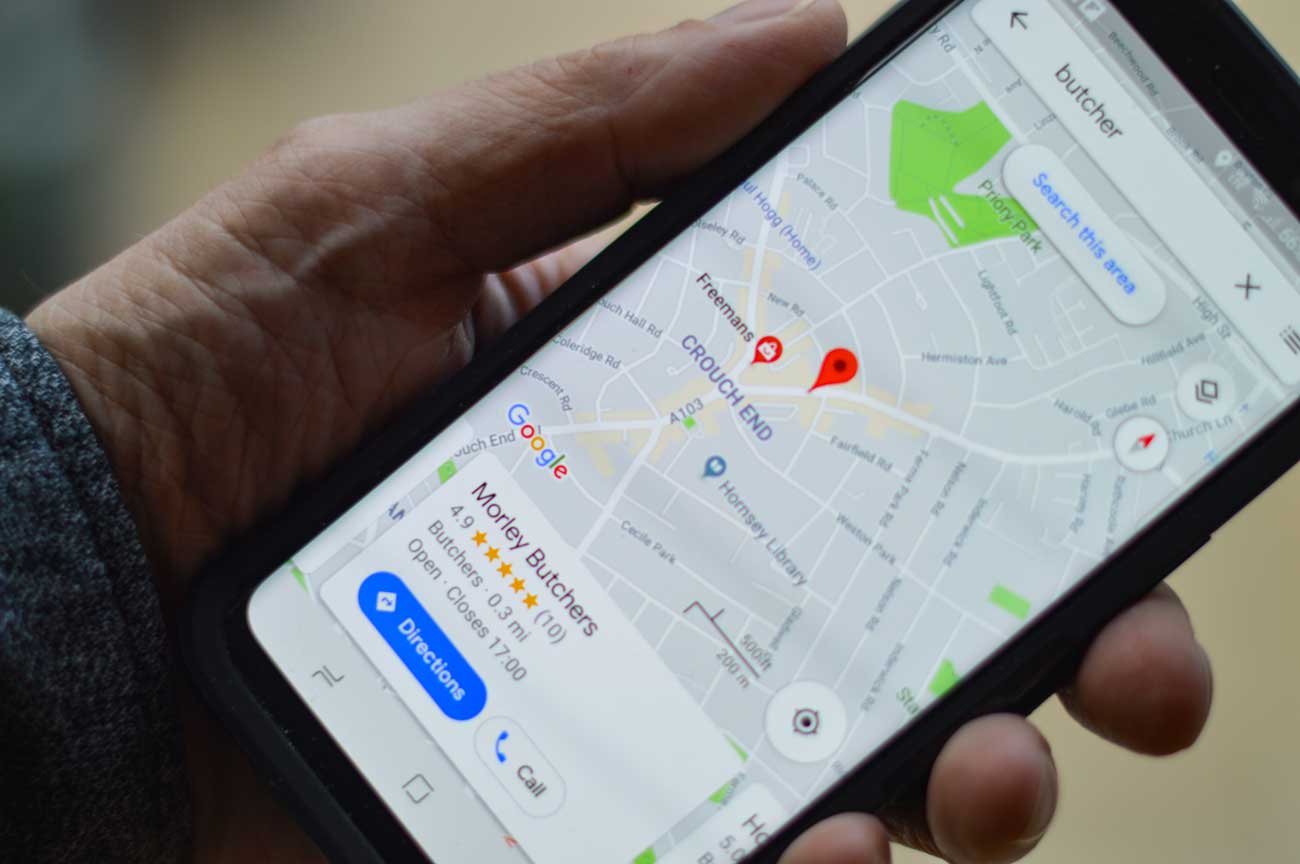Key Takeaways
SEO Basics: Learn the fundamentals of SEO and why it’s crucial for your business.
On-Page and Off-Page SEO: Understand the different aspects of SEO and how they work together.
Generational Search Preferences: Tailor your SEO strategy to the search habits of different generations.
Keyword Research Tools: Utilize tools like Moz, Ahrefs, and SEMRush for effective keyword research.
E-E-A-T and AI Overviews: Enhance your content’s credibility and leverage AI-generated summaries to boost visibility.
What Is SEO: A Simple Concept
The idea behind SEO is straightforward: build your website and online presence around specific revenue-generating keywords that your ideal customers are searching for. These potential customers may not be familiar with your brand, but they discover your products or services through these keywords.
Example
Imagine you own a restaurant in Melbourne called “The Red Tomato,” serving superb Italian cuisine. Following SEO best practices, when potential customers search for “Italian restaurant Melbourne,” Google matches your brand with the search query, and the searcher finds your website.
Help boost your website’s rankings and download our essential SEO checklist.
Optimisation
Optimisation involves refining various elements of your website to improve its visibility in search engine results. This includes using relevant keywords in your content, ensuring fast loading times, and providing a mobile-friendly experience. Creating high-quality, engaging content and securing backlinks from reputable sources can significantly boost your search rankings. Regularly updating your website and following the latest SEO trends are crucial for maintaining and improving your online presence.

The Importance of SEO in Reaching Different Generations
Generational Search Preferences
Understanding how different generations search online can refine your SEO strategy. According to HubSpot’s Consumer Trends Report:
- Gen Z: 56% prefer search engines, 31% use social media, and 13% rely on AI chatbots like ChatGPT.
- Millennials: 59% prefer search engines, 28% use social media, and 13% rely on AI chatbots.
- Gen X: 67% prefer search engines, 18% use social media, and 15% rely on AI chatbots.
- Boomers: 96% prefer search engines, 3% use social media, and 2% rely on AI chatbots.
Baby Boomers
Investing in SEO is essential for businesses targeting Baby Boomers. By optimising your website to rank higher in search engine results pages (SERPs), you can:
- Increase online visibility to this demographic
- Drive more qualified traffic to your website
- Establish your brand as a trusted resource in your industry
Neglecting SEO could mean missing out on valuable opportunities to connect with Baby Boomers, who hold significant purchasing power and are increasingly active online.
Younger Generations
While younger generations rely on search engines slightly less than Boomers, SEO remains crucial. However, it’s also important to diversify your marketing mix. By ensuring your website is optimised for search, you can:
- Improve online visibility to these demographics
- Attract more qualified traffic to your website
- Position your brand as a go-to resource in your industry
Understanding the search preferences of different generations and adapting your SEO strategy accordingly can help you effectively reach and engage your target audience online, regardless of their age.
How Does SEO Work?
Search engines like Google use bots to crawl pages on the web, going from site to site, collecting information about those pages, and indexing them. Algorithms then analyse pages in the index, taking into account hundreds of ranking factors to determine the order pages should appear in search results for a given query.
On-Page SEO
On-Page SEO refers to optimising individual web pages to rank higher and earn more relevant traffic in search engines. Here are some key elements of on-page SEO:
- Title Tags: Include your primary keyword in the title tag, ideally near the beginning.
- Meta Descriptions: Write compelling meta descriptions that include relevant keywords.
- Headings (H1, H2, H3): Use headings to structure your content and include keywords naturally.
- Content Quality: Focus on creating high-quality, informative content that answers your audience’s questions.
- URL Structure: Keep URLs short and include keywords.
- Internal Linking: Link to other relevant pages on your site to improve navigation and authority.
- Image Alt Text: Use descriptive alt text for images to help search engines understand the content of your pages.
Off-Page SEO
Off-Page SEO involves activities done outside of your website to improve its ranking. Here are some essential off-page SEO techniques:
- Backlinks: Acquire high-quality backlinks from reputable sites. Backlinks act as votes of confidence for your content.
- Social Media Marketing: Promote your content on social media platforms to increase visibility and drive traffic.
- Guest Blogging: Write articles for other reputable sites in your industry to build authority and earn backlinks.
- Influencer Outreach: Partner with influencers to amplify your content and reach a broader audience.
E-E-A-T: Enhancing Your Content’s Credibility
E-E-A-T stands for Experience, Expertise, Authoritativeness, and Trustworthiness. These factors are crucial for establishing content credibility and quality. Google evaluates these factors to ensure that high-quality, reliable information is provided to users, especially for topics that significantly impact a person’s wellbeing, like health and finance.
Why is E-E-A-T Important for SEO?
E-E-A-T directly influences Google’s assessment of content quality. High E-E-A-T content is more likely to rank well in search results. As Hyung-Jin Kim, VP of Search at Google, emphasised, “E-A-T is a template for how we rate an individual site. We do it to every single query and every single result. It’s pervasive throughout every single thing we do.”
SEO vs SEM
Search Engine Marketing (SEM) involves paying Google to display ads for your site when someone searches for your desired keyword. This paid approach can help you achieve quick results while your organic SEO efforts are still developing. Whether SEM or SEO is the right choice depends on your unique business needs and goals. SEM provides immediate visibility but requires ongoing investment, whereas SEO focuses on long-term, sustainable growth. Balancing both can be an effective strategy for maximising your online presence.
SEO and Digital Marketing
Effective SEO is not a standalone tactic but a crucial component of a comprehensive digital marketing strategy. It integrates with various marketing efforts, enhancing the overall impact of your campaigns. SEO should be viewed within a broader marketing framework, working alongside content marketing, social media, email marketing, and paid advertising. By aligning SEO with your overall digital marketing strategy, you can create a cohesive approach that maximises online visibility, drives targeted traffic, and, ultimately, achieves your business goals.
Keywords
Choosing the right keywords is crucial for the success of your SEO campaign. You’ll want to find terms that effectively describe your business and highlight what makes it special. Generic keywords like “hotel” or “luxury hotel” are too broad and won’t help differentiate your company from competitors. Instead, opt for more specific keywords like “luxury hotel [city name]” or “boutique hotel near [landmark].” These targeted keywords can help your site rank higher within your niche and attract the right audience.
Keyword Research Tools
Identifying the right keywords isn’t easy, especially for first-time SEO marketers. Tools like Moz, Ubersuggest, Ahrefs, and SEMRush can help you not only come up with great keyword ideas but also monitor the current usage and competitiveness of these keywords. Knowing how often people search for given keywords—and how much competition there is—will help you find the optimal balance of exposure and web traffic, enabling new visitors to find your site effectively.
Embrace the Power of SEO
In today’s digital age, SEO is no longer optional – it’s a necessity. By understanding and leveraging the power of search engine optimisation, you can skyrocket your online visibility, attract your ideal customers, and establish your brand as an industry authority. Remember, SEO is an ongoing journey that requires continuous effort, adaptation, and a commitment to providing value. By focusing on E-E-A-T, technical optimisation, and audience engagement while tailoring your strategy to different generations, you can unlock a world of opportunities and take your online presence to new heights.






